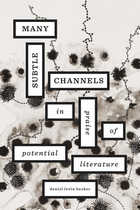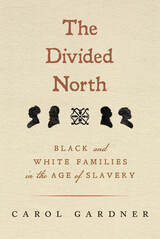
A token of the world’s instability and of human powerlessness, chance is inevitably a crucial literary theme. It also presents formal problems: Must the artist struggle against chance in pursuit of a flawless work? Or does chance have a place in the artistic process or product? This book examines the representation and staging of chance in literature through the study of a specific case—the work of the twentieth-century French writer Georges Perec (1936–82).
In Constraining Chance, James explores the ways in which Perec’s texts exploit the possibilities of chance, by both tapping into its creative potential and controlling its operation. These works, she demonstrates, strive to capture essential aspects of human life: its "considerable energy" (Perec’s phrase), its boundless possibilities, but also the constraints and limitations that bind it. A member of the Ouvroir de littérature potentielle (known as Oulipo), Perec adopted the group’s dictum that the literary work should be "anti-chance"—a product of fully conscious creative processes. James shows how Perec gave this notion a twist, using Oulipian precepts both to explore the role of chance in human existence and to redefine the possibilities of literary form. Thus the investigation of chance links Perec’s writing methods, which harness chance for creative purposes, to the thematic exploration of causality, chance, and fate in his writings.
Constraining Chance has received early praise from scholars in the field. Warren F. Motte calls it "an erudite, engaging, intellectually intrepid reflection on the ways in which one of the most powerful authors of the twentieth century grappled with the notion of chance. [James] writes with both elegance and authority, inviting us to see Georges Perec's work through a new lens, one where chance may be viewed as a positive potential, fully enlisted in the service of ‘intentional’ literature."

What sort of society could bind together Jacques Roubaud, Italo Calvino, Marcel Duchamp, and Raymond Queneau—and Daniel Levin Becker, a young American obsessed with language play? Only the Oulipo, the Paris-based experimental collective founded in 1960 and fated to become one of literature’s quirkiest movements.
An international organization of writers, artists, and scientists who embrace formal and procedural constraints to achieve literature’s possibilities, the Oulipo (the French acronym stands for “workshop for potential literature”) is perhaps best known as the cradle of Georges Perec’s novel A Void, which does not contain the letter e. Drawn to the Oulipo’s mystique, Levin Becker secured a Fulbright grant to study the organization and traveled to Paris. He was eventually offered membership, becoming only the second American to be admitted to the group. From the perspective of a young initiate, the Oulipians and their projects are at once bizarre and utterly compelling. Levin Becker’s love for games, puzzles, and language play is infectious, calling to mind Elif Batuman’s delight in Russian literature in The Possessed.
In recent years, the Oulipo has inspired the creation of numerous other collectives: the OuMuPo (a collective of DJs), the OuMaPo (marionette players), the OuBaPo (comic strip artists), the OuFlarfPo (poets who generate poetry with the aid of search engines), and a menagerie of other Ou-X-Pos (workshops for potential something). Levin Becker discusses these and other intriguing developments in this history and personal appreciation of an iconic—and iconoclastic—group.
READERS
Browse our collection.
PUBLISHERS
See BiblioVault's publisher services.
STUDENT SERVICES
Files for college accessibility offices.
UChicago Accessibility Resources
home | accessibility | search | about | contact us
BiblioVault ® 2001 - 2025
The University of Chicago Press









